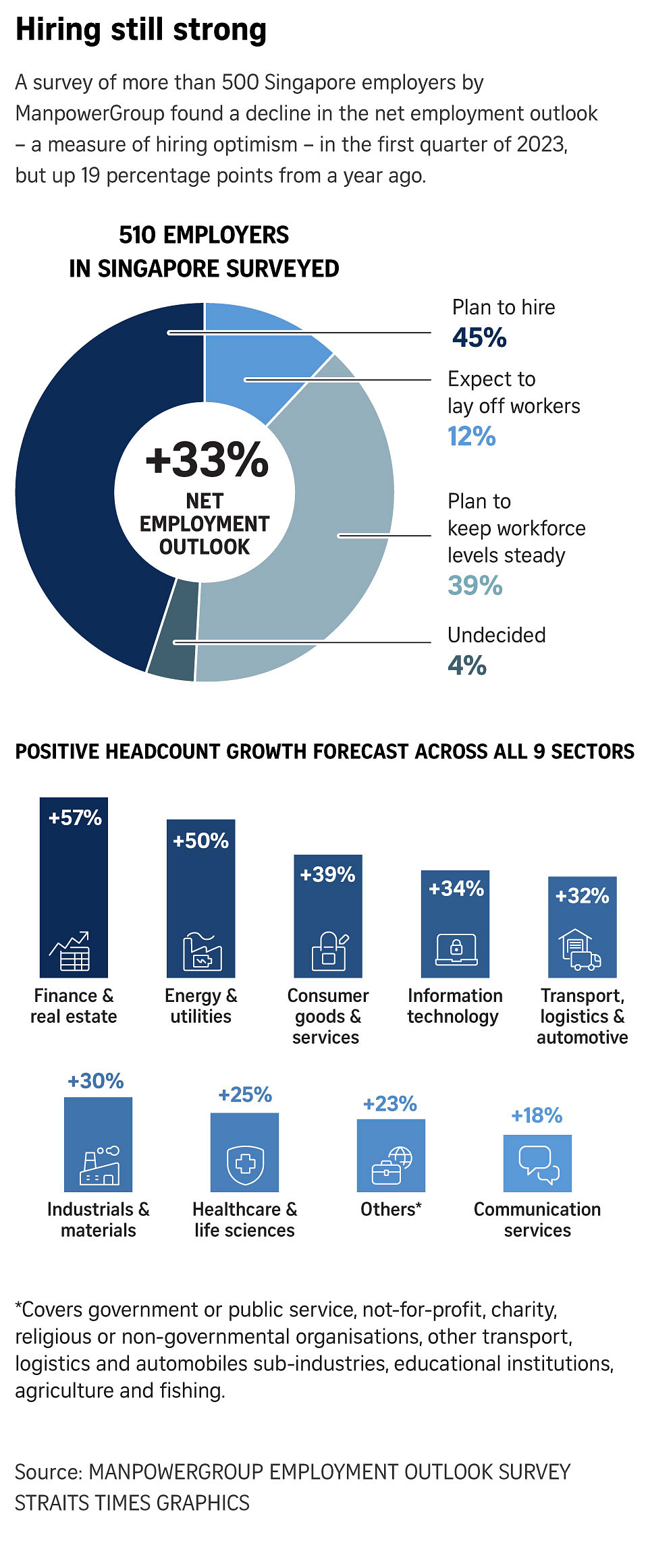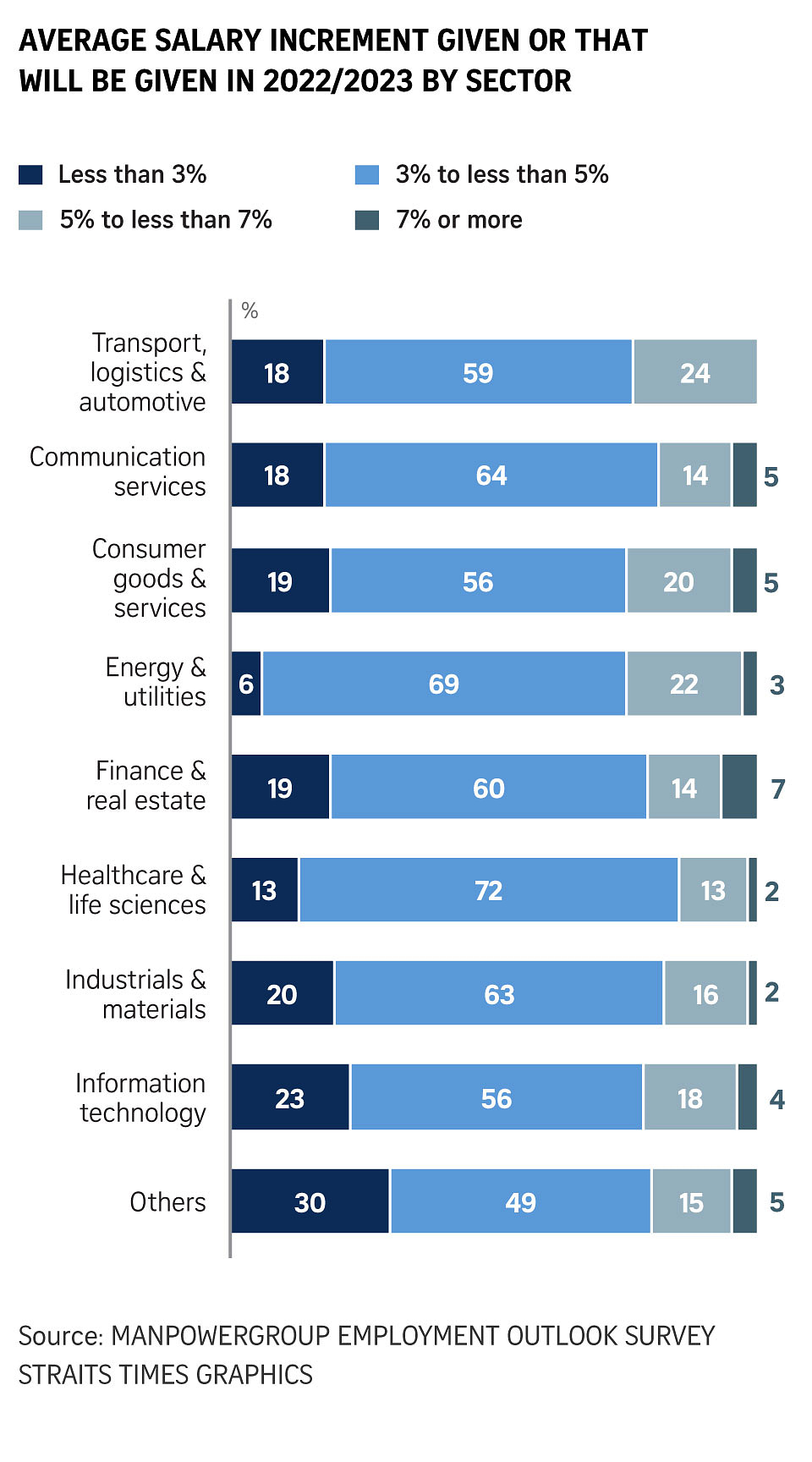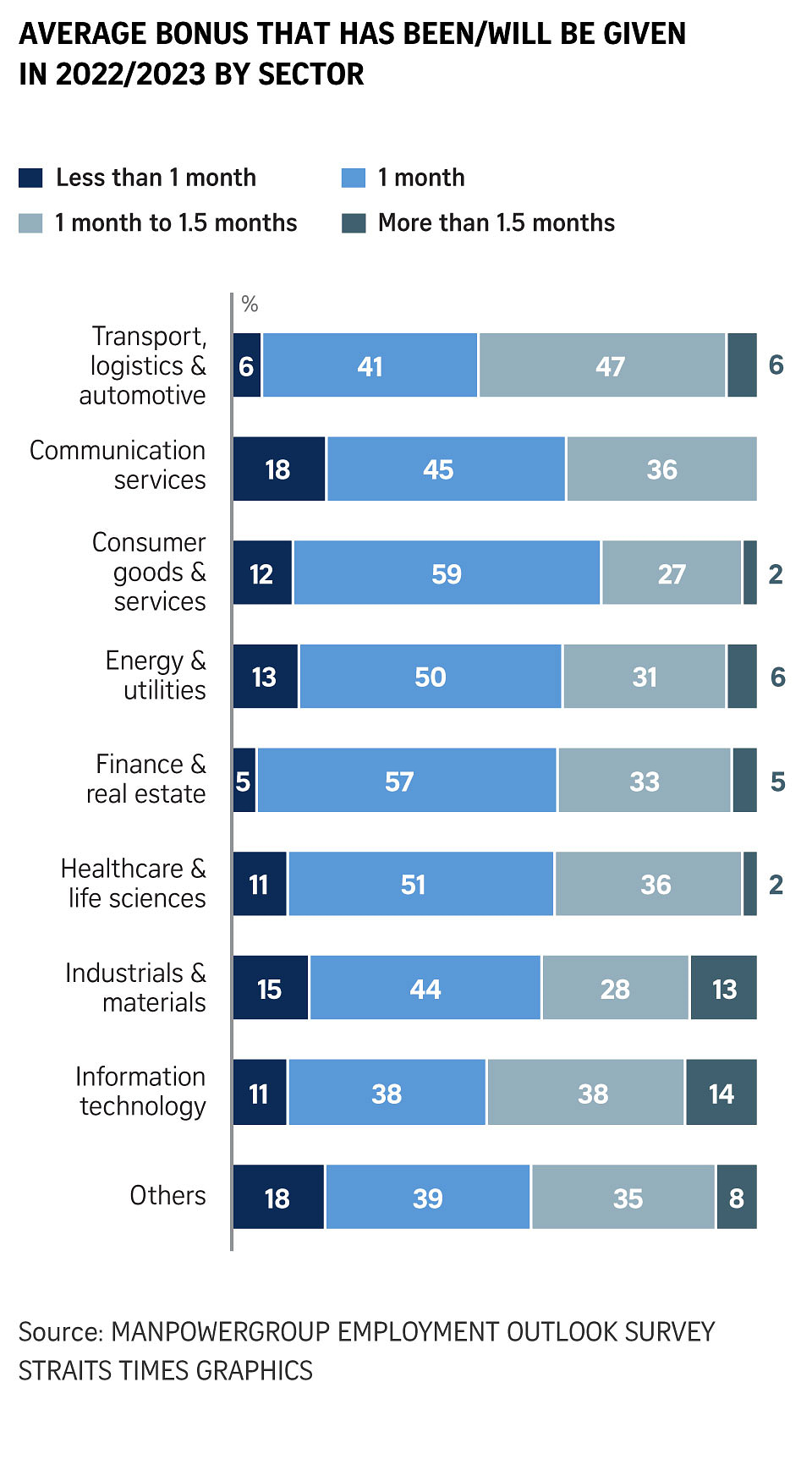SINGAPORE – Concerns about an economic slowdown have slightly tempered hiring optimism among employers in Singapore, though they are still prepared to pay more to attract and retain enough staff to gear up growth efforts.
Most workers can expect salary increments of 3 per cent to less than 5 per cent, and about nine in 10 employers plan to award bonuses of one month or more to their employees, a survey of more than 500 companies found.
The employers reported a net employment outlook of 33 per cent in the first quarter of 2023, a decline for the second straight quarter after a record high of 40 per cent in the third quarter of 2022.
The net employment outlook is a measure of hiring optimism, defined as the percentage of companies surveyed that intend to take on new staff minus the percentage that intend to downsize.
According to survey results released on Thursday, the net employment outlook is down 3 percentage points from the previous quarter, but up 19 percentage points from the first quarter of 2022.
The survey by recruitment company ManpowerGroup was conducted in October 2022 and also polled 40 other markets.
Singapore employers from nine sectors polled in the quarterly survey reported a net positive outlook, with those in finance and real estate, energy and utilities, and consumer goods and services driving the hiring demand, posting net positive outlook figures of between 39 per cent and 57 per cent.
A hiring boom is anticipated in finance and real estate, which posted the strongest outlook – 57 per cent – among all sectors polled in Singapore, said ManpowerGroup, adding that this figure is the strongest globally for the sector.

The weakest labour markets are forecast to be in healthcare and life sciences, communication services, and other industries – a category that comprises sectors beyond the other eight, such as public service and education.
Companies with fewer than 10 employees continue to report the strongest hiring intentions for the second consecutive quarter, surging by 36 percentage points compared with the first quarter of 2022, while decreasing by 6 percentage points from the previous quarter.
The survey also polled Singapore employers on their salary increment and bonus plans.
Most workers can expect salary increments of 3 per cent to less than 5 per cent, with six in 10 employers overall signalling their intention to offer increments in that range.
More than nine in 10 employers that hire fewer than 10 people are set to offer increments of more than 3 per cent, outdoing larger companies.
Fewer than two in 10 employers plan to offer increments of 5 per cent to less than 7 per cent, while 4 per cent of employers plan to offer salary increments of 7 per cent or more.

The energy and utilities, as well as healthcare and life sciences sectors are expected to have the highest proportion of employers giving their workers increments. About nine in 10 employers in both sectors report plans to give increments of 3 per cent or more.
As for bonuses, 88 per cent of employers are planning to give at least one month’s salary to their employees, up 7 percentage points from the year before.
Employers in finance and real estate are expected to be the most generous with their bonus payouts, with 95 per cent planning to award one month’s salary or more.
Ms Linda Teo, country manager of ManpowerGroup Singapore, said Singapore’s labour market is starting to show signs of cooling down amid economic uncertainty and rising costs.

“Nonetheless, there is still a strong demand for talent across sectors, especially in finance and real estate where companies are hiring tech talent aggressively to grow their digital financial services capabilities,” she said.
She added: “With inflation increasing the costs of living, candidates are increasingly prioritising salary when considering job offers.
“Companies are increasing their compensation packages to attract and retain employees, especially in sectors where there is a high demand for manpower or high turnover.”
Source: straitstimes.com

